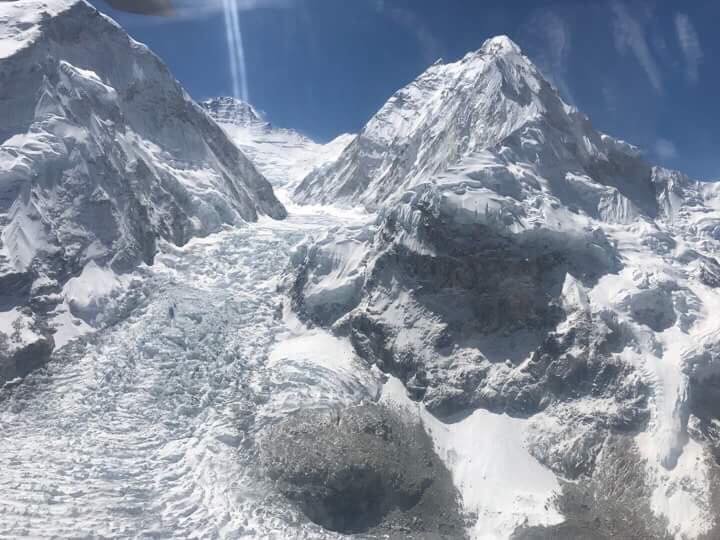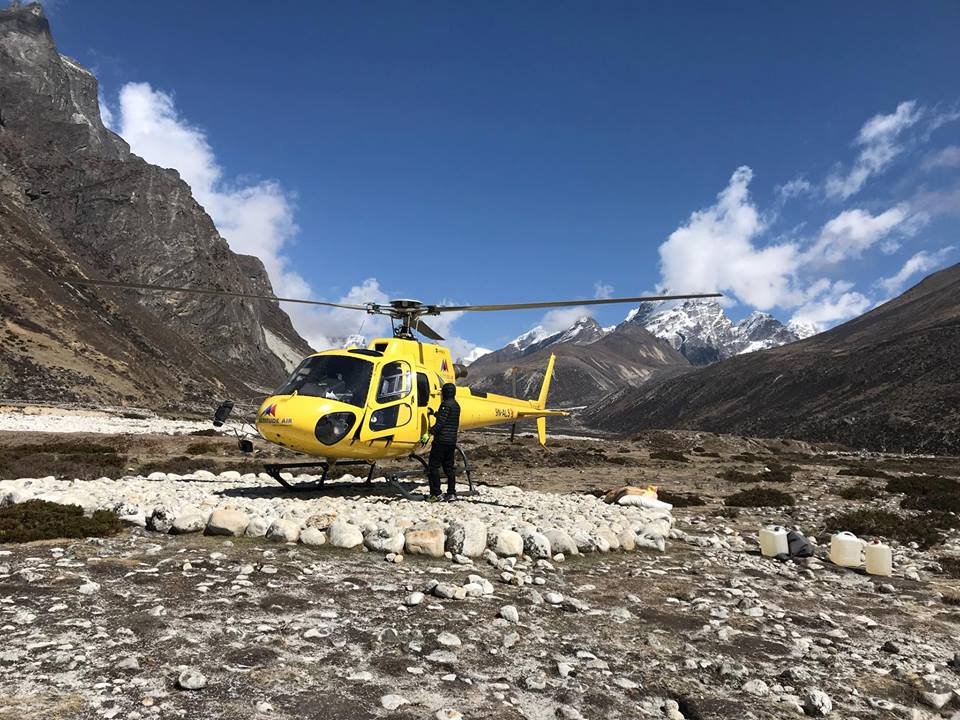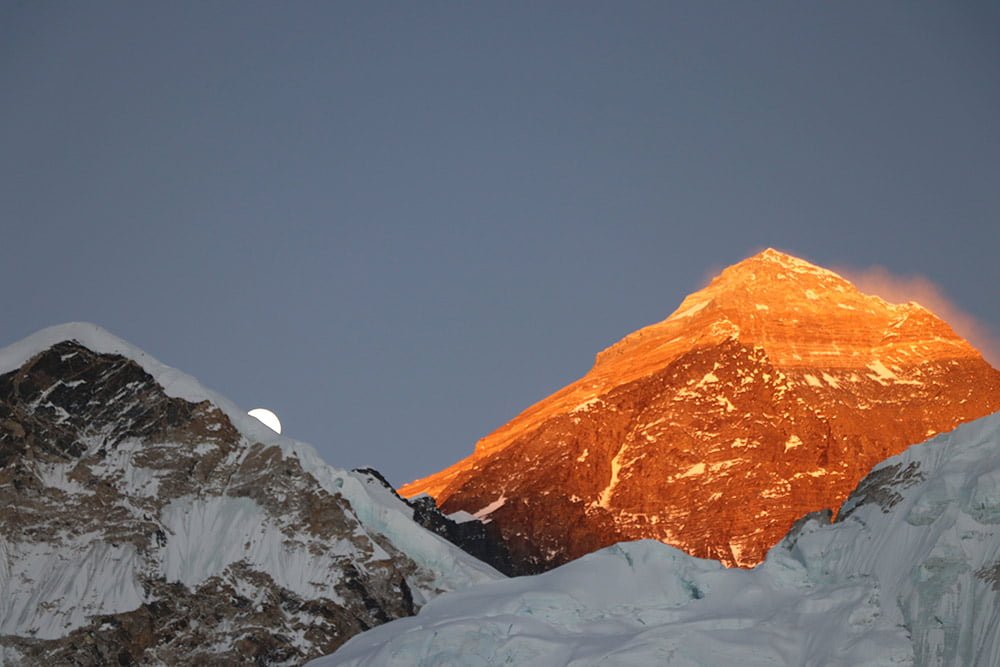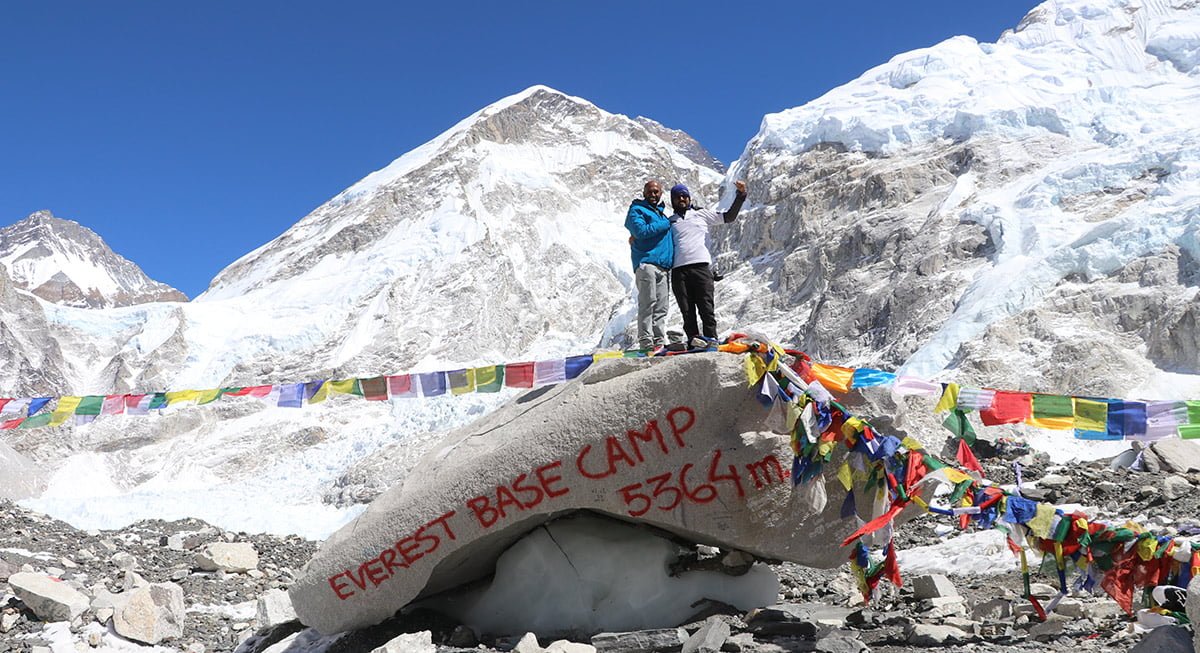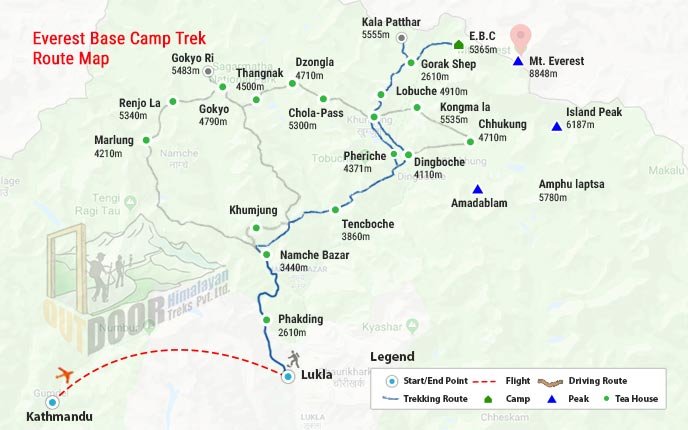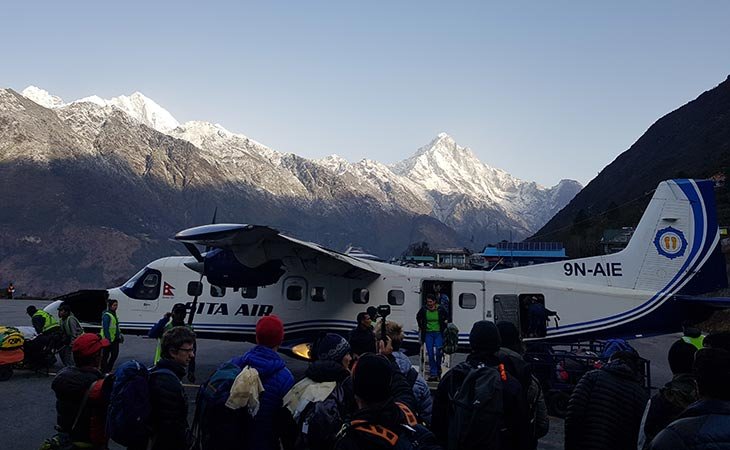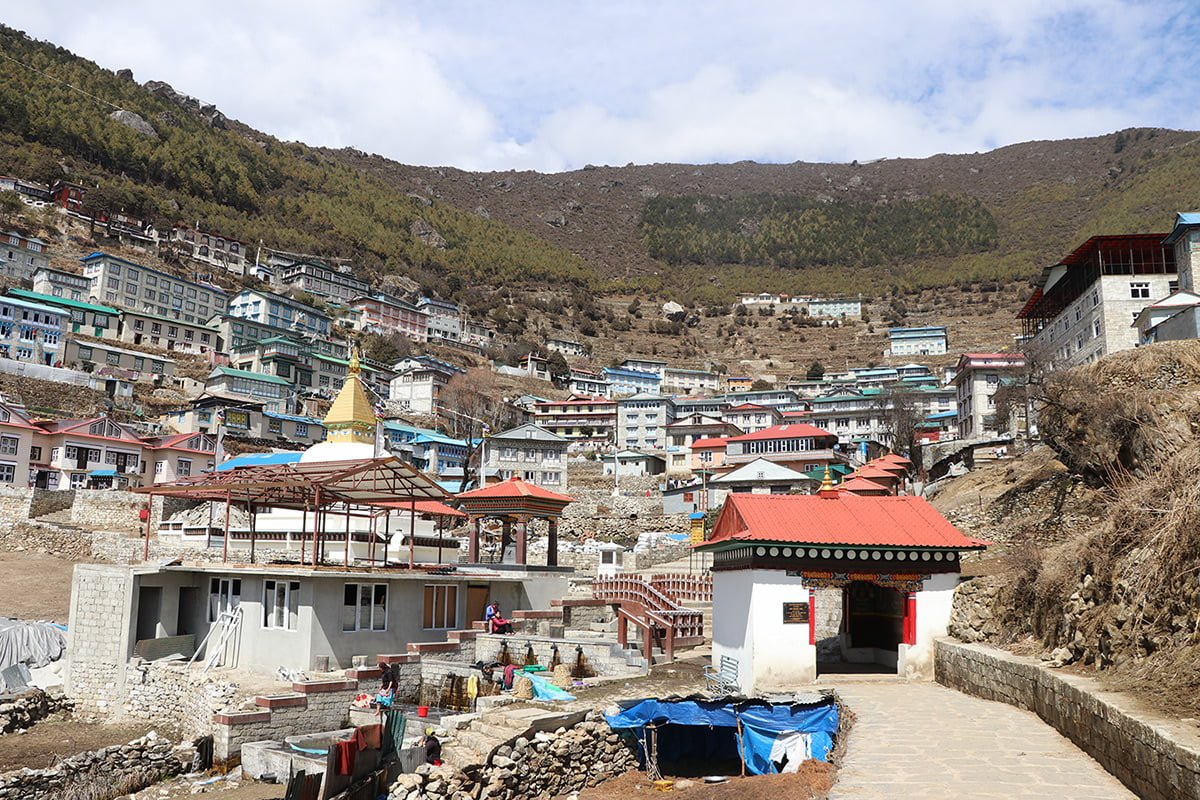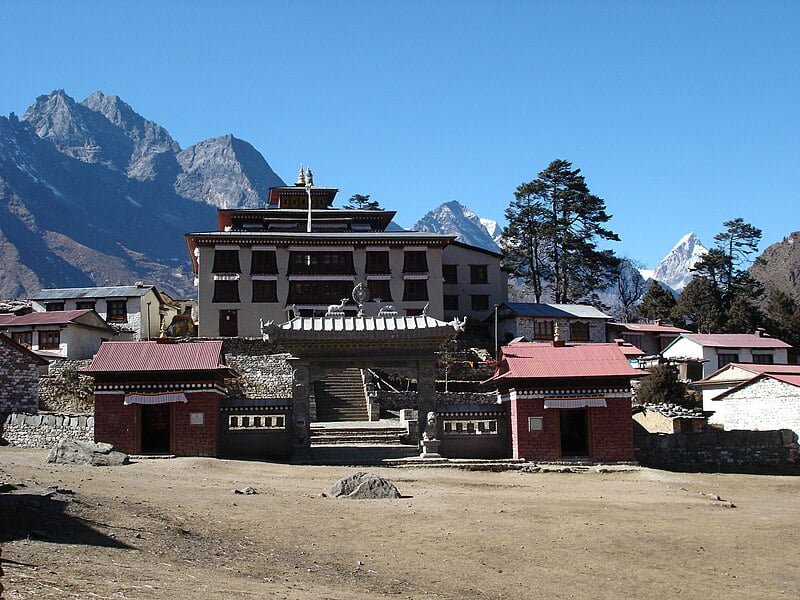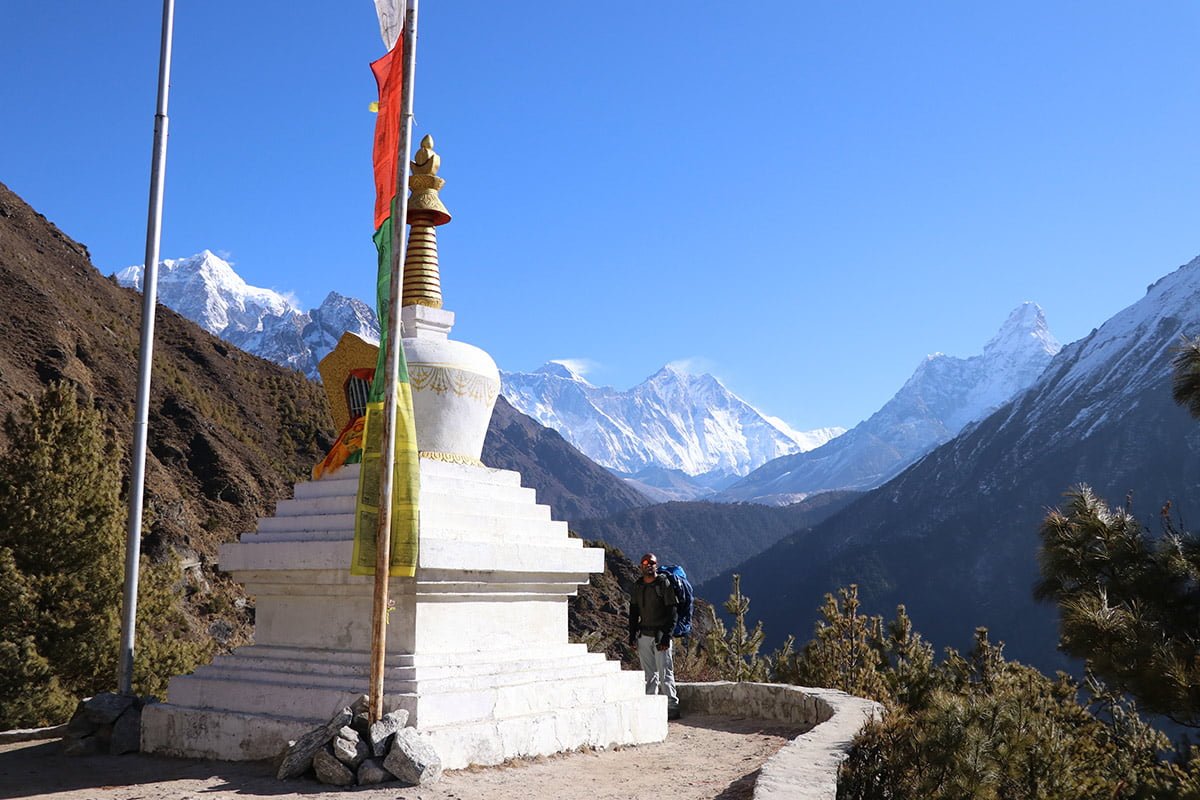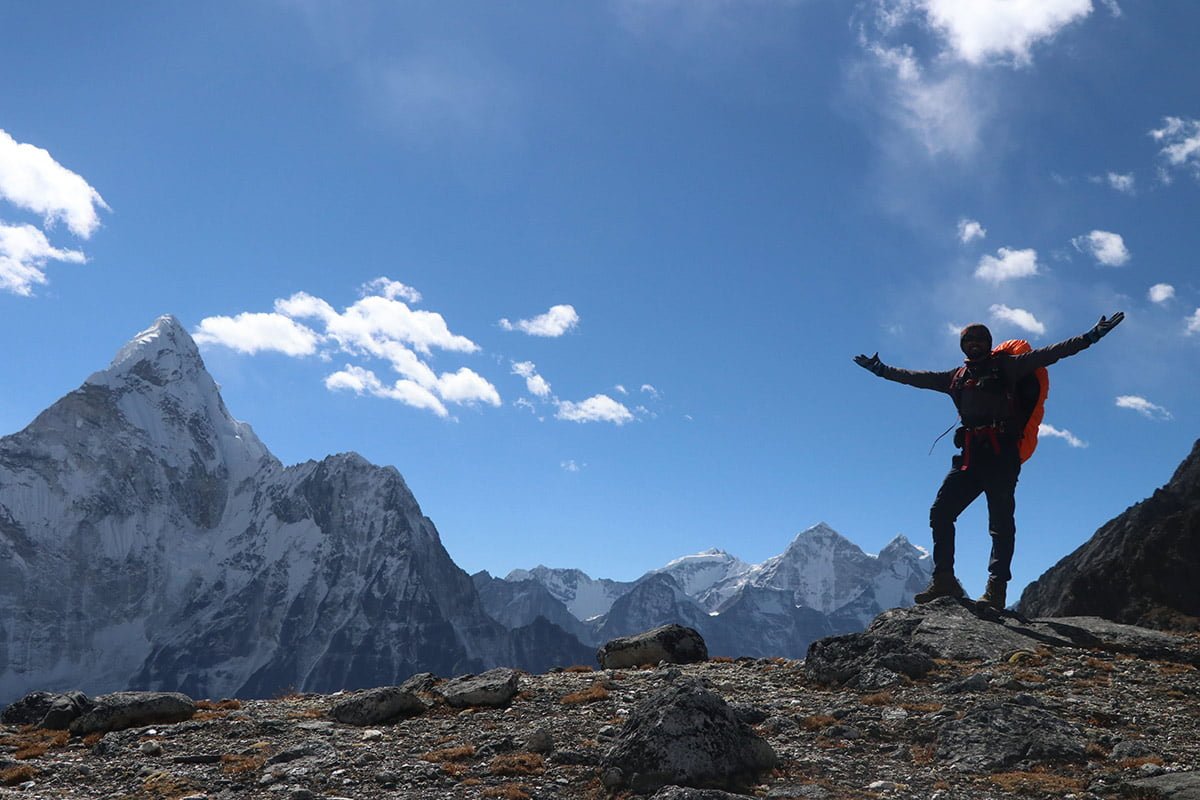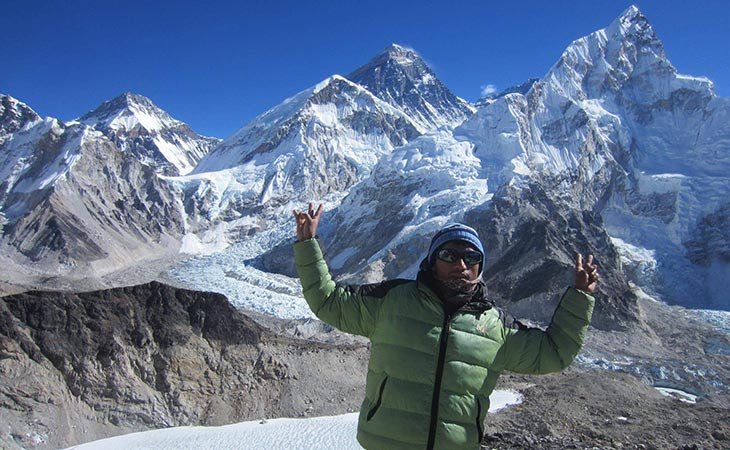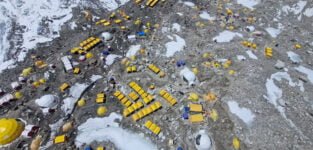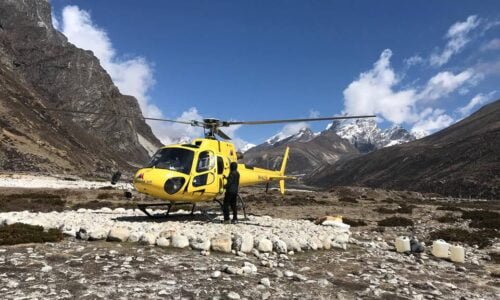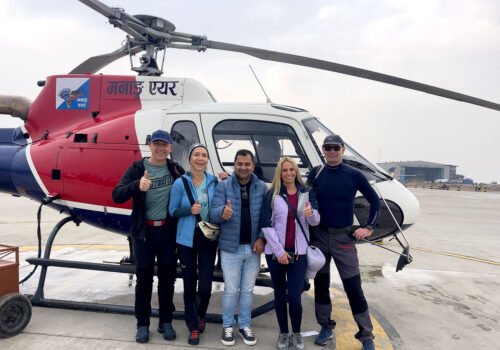Everest Base Camp Trek Return to Lukla by Helicopter begins with a short domestic flight to Lukla. Trek commences traversing beautiful settlements in the vicinity of towering, majestic peaks. Hike to Kalapatthar, admire the close-up mountain vistas, and descend to Pheriche. Fly back to Lukla on a shared helicopter.
Is this Everest Base Camp Trek Return to Lukla by Helicopter for me?
Physical Grading: Moderate
A moderate trek that demands trekkers/travelers to have a good level of physical and mental fitness to trek daily for long hours.
Max Elevation: 5,644.5 m (Kalapatthar)
The highest point of the trek is a perfect vantage point to get close-up views of Everest, Pumori, Ama Dablam, etc.
Accommodation: Hotel, Teahouse
Comfortable accommodation with basic facilities during the trek and a standard hotel in a city.
Meals: Full Board
Healthy and Hygienic 3-course meals during the trek, and only breakfast in a city.
Best Season: Autumn & Spring
Stable weather and temperature offer clear views and comfortable trekking trails.
Trip Route:
Lukla – Phakding – Namche Bazaar – Tengboche – Dingboche – Lobuche – Gorakshep -Everest Base Camp – Gorakshep – Kalapatthar – Pheriche- Helicopter fly out to Lukla
Everest Base Camp Trek Return to Lukla by Helicopter Highlights
- Exciting Helicopter Fly Out to Lukla from Pheriche
- Everest Base Camp (5,364 m) and Kalapatthar viewpoint (5644.5 m)
- Attractive Khumjung village and other Sherpa settlements
- Impressive views of Everest, Lhotse-Nuptse Wall, Ama Dablam, and Kantega
- Sherpa locals, lifestyle, and culture
- Mountaineering Museum in Namche Bazaar
- Numerous monasteries, lamaseries, and temples, including the famous Tengboche Monastery
Flight Information
Everest Base Camp is every enthusiastic trekker’s dream destination. So, usually during the peak trek seasons, the inflow of trekkers is higher. So, the air traffic in Kathmandu during April, May, October, and November is tough to manage. Therefore, the flight schedules to Lukla are operated from Ramechhap, which is a 4-hour drive from Kathmandu.Everest Base Camp Trek Return to Lukla by Helicopter Overview
Everest Base Camp Trek Return to Lukla by Helicopter begins with a short domestic flight to Lukla. From Lukla, we rely on our feet for the rest of the journey. On the first day, get to explore the taste of an intoxicating blend of mountain views and the local Sherpa culture. Spend nights mostly in teahouses, and enough time for acclimatization is allocated whenever a significant altitude shift is involved. You don’t need to climb Everest or any other mountain for an adventure experience; you will realize that at the end of the trip.
Everest Base Camp Trek Return to Lukla by Helicopter follows the Dudh Koshi River (upstream) and passes through Dudh Koshi Valley, surrounded by Thamserku and Kusum Kanguru peaks. After reaching the colorful Namche Bazaar, explore the Mountaineering Museum in Namche Bazaar. Witness mountain life in Khumjung, and visit many monasteries, lamaseries, and temples during the trip, including the famous Tengboche Monastery.
Ascend to the iconic Everest Base Camp and the next day to Kalapatthar, the highest point of our trail. Enjoy the Himalaya views like Mt. Everest (8,848.86 m), Mt. Nuptse (7,864 m), Mt. Pumori (7,156 m), Mt. Cho Oyu (8,153 m), Mt. Lhotse (8,513 m), and many more. Descend to Pheriche and the next day fly to Lukla on a shared helicopter.


